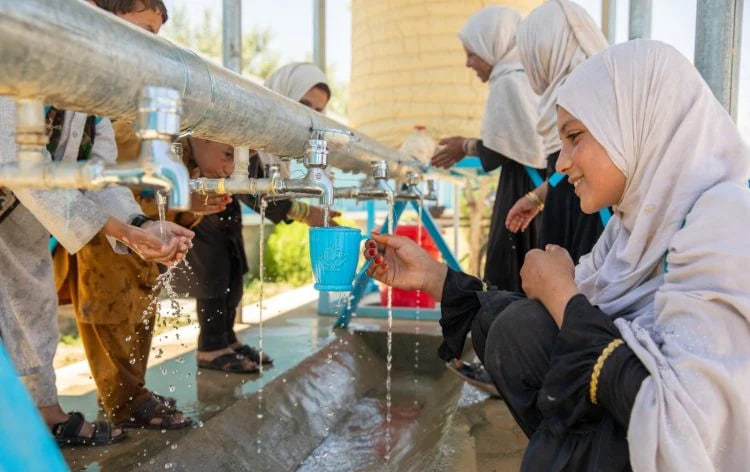RASC News Agency: In Afghanistan, for thousands of children, school is more than just a building it is a flicker of hope amid dust and despair. Yet even this fragile hope is now being eroded by a lack of clean water and proper sanitation facilities, particularly in rural areas where infrastructure is virtually nonexistent. In a recent post on the social media platform X, Tajudeen Oyewale, UNICEF’s representative in Afghanistan, warned that the shortage of potable water and basic hygiene infrastructure such as toilets in schools is a major barrier to education, especially for girls. He emphasized that inadequate facilities force many students to abandon their education altogether, perpetuating a cycle of poverty and illiteracy.
Oyewale noted that nine schools in Logar province were recently equipped with access to clean water and functioning sanitation facilities. While this may seem a minor achievement, it has already protected over 2,300 students from waterborne diseases and the danger of dropping out due to unsanitary conditions. These small but vital improvements could mean the difference between a future shaped by education or a life condemned to ignorance. Across much of Afghanistan, the absence of basic sanitation not only poses serious health risks but also becomes a security concern, particularly for girls. In many conservative communities, the lack of separate or functional toilets leads families to keep their daughters at home, fearing for their safety and dignity. In such an environment, the message is clear: if a school cannot guarantee clean water and safe restrooms, it cannot be considered a safe space for girls.
UNICEF has previously warned that if urgent action is not taken, Kabul’s water reserves could be completely depleted by 2030. The implications of such a crisis would extend far beyond environmental damage they would undermine education, social stability, and public health, deepening the already vast humanitarian catastrophe that the Taliban regime has failed to address. In a nation where millions of children still dream of writing their first word, access to clean water and a simple, functioning toilet may be what decides who receives an education and who is left behind. And yet, under the Taliban’s discriminatory and neglectful rule, these most basic human rights continue to be withheld from the country’s youngest and most vulnerable citizens.






